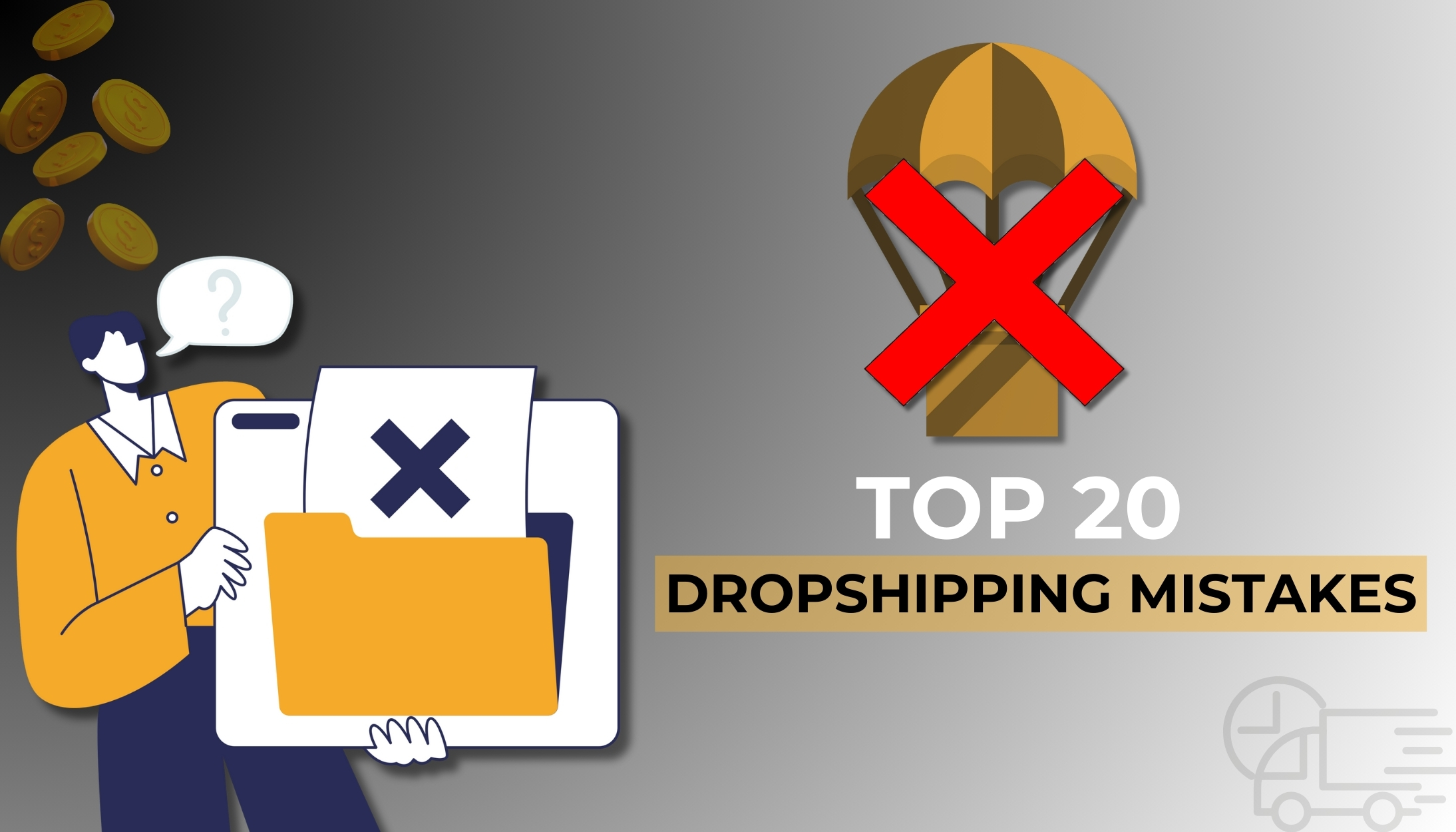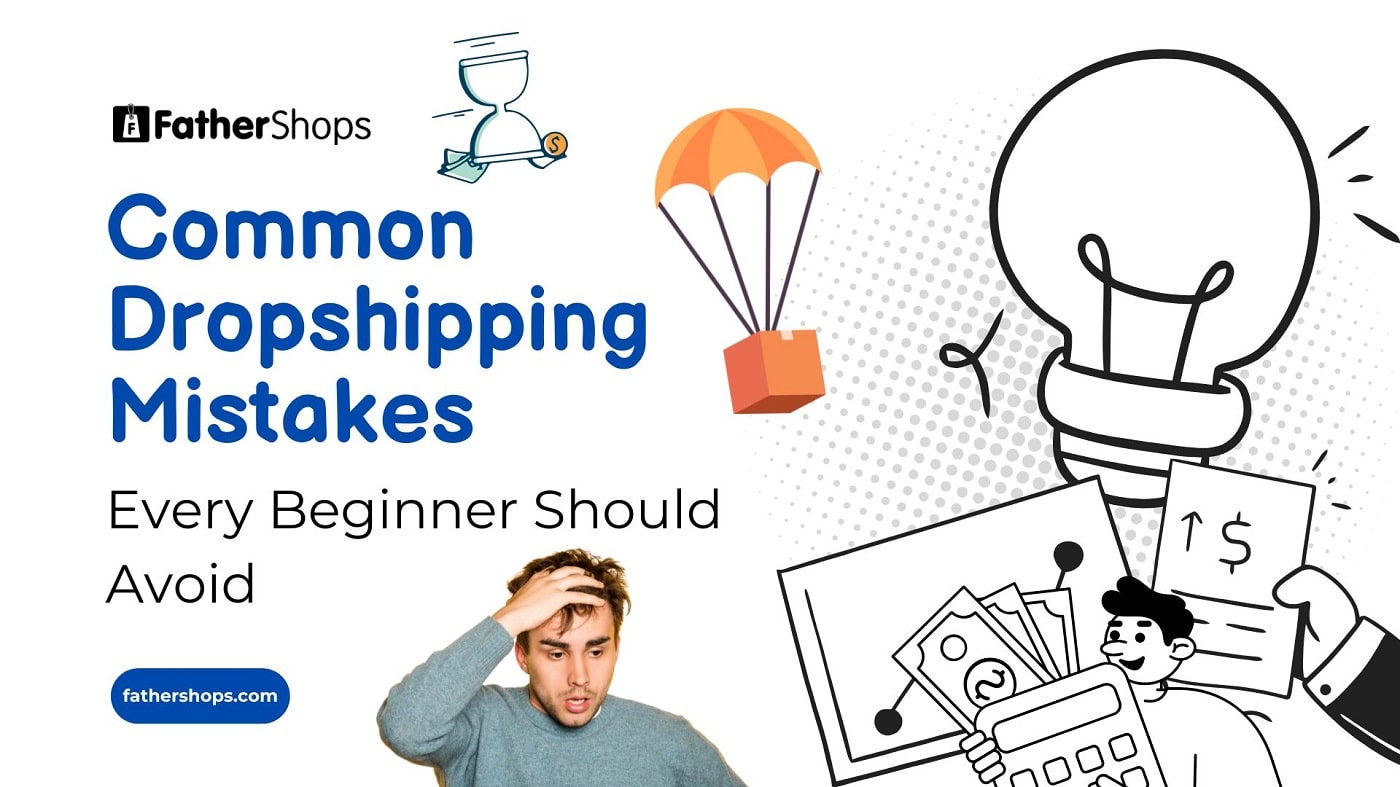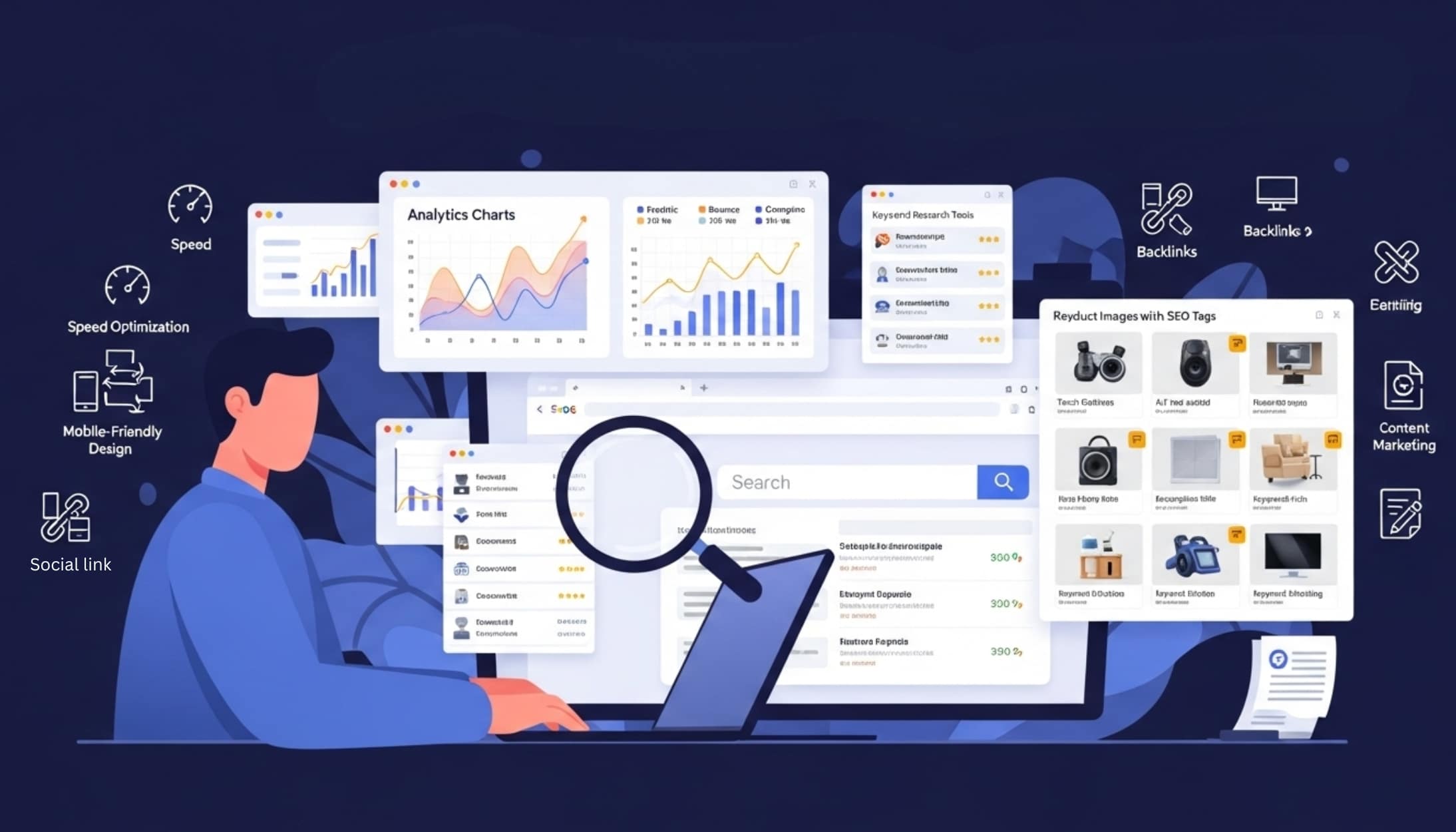Table of Contents
Introduction
Welcome to the dynamic world of dropshipping, a revolutionary approach to online sales. This innovative business model empowers you to sell products directly to consumers without the need to manage inventory, combining unmatched flexibility with the scalability that traditional retail lacks. However, navigating this landscape is not without its challenges. Being aware of common dropshipping mistakes and understanding how to avoid them is crucial for anyone aiming to develop a successful online store. Join me as we delve into these obstacles, learning effective strategies to sidestep potential pitfalls and pave your way to success in the bustling realm of e-commerce.Importance of Avoiding Mistakes in Dropshipping
Navigating the dropshipping landscape successfully means more than just mastering the logistics; it involves connecting with your customers on a human level. Mistakes, while common in any business, can ripple through a dropshipping model with particularly swift consequences, given its customer-facing nature and the operational distances involved. Each error, from delayed shipments to miscommunications about product quality, can shake the trust that customers place in your store. This trust is hard-earned and easily lost, making the avoidance of such mistakes not just a logistical priority, but a critical component of building sustainable relationships with your customers. In a marketplace as vast and impersonal as the internet, fostering reliability and satisfaction isn’t just good practice—it’s a cornerstone of your business’s identity and longevity.Common Dropshipping Mistakes To Avoid

- High Expectations: Starting a dropshipping business with the expectation of quick and easy profits can lead to disappointment. It’s important to understand that like any business, success requires time, effort, and patience. Setting realistic goals and preparing for a gradual climb helps maintain motivation and focus.
- Supplier Relationships: The success of a dropshipping business heavily depends on the reliability of suppliers. Poor relationships can lead to delays, stock issues, and quality problems. Building strong, collaborative relationships with suppliers ensures product availability and can give you a competitive advantage in handling stock efficiently. Therefore, finding a reliable supplier is crucial for successful business.
- Shipping and Delivery Expectations: Misrepresenting shipping times can quickly damage your reputation. It’s crucial to communicate realistic shipping times to customers, which should align with the logistical capabilities of your suppliers. Overpromising can lead to customer dissatisfaction and increased returns.
- Complex Shipping Fees: Offering multiple shipping options might seem customer-friendly, but it can complicate the checkout process and backend logistics. Simplifying shipping options—like offering a flat rate or free shipping—can help reduce confusion and streamline operations.
- Returns and Refund Management: Having a clear, efficient returns and refund process is critical for customer satisfaction and retention. This process should be easy for customers to understand and execute, ensuring they feel secure in their purchasing decisions.
- Market Research: Failing to conduct thorough market research can lead you to enter oversaturated markets or target the wrong audience. Understanding market demand, customer preferences, and competitor strategies is crucial for positioning your products effectively.
- Customer Service: The quality of customer service can make or break your business. Quick, empathetic, and effective responses to customer inquiries and complaints are essential to keep customers coming back. Poor customer service can lead to negative reviews and harm your brand’s reputation.
- Financial Planning: Effective financial management is essential. Without careful budgeting and financial planning, it’s easy to overspend or run into cash flow problems, especially when scaling the business.
- Legal and Tax Obligations: Every e-commerce business, including dropshipping, must comply with relevant laws and tax obligations. Neglecting these can lead to fines, penalties, or serious legal issues. It’s advisable to consult with a legal expert to ensure compliance.
- Technology and Tools: Utilizing outdated or inadequate technology can hinder your ability to manage inventory, process orders, and interact with customers efficiently. Investing in the right e-commerce platforms and inventory management systems can help avoid these issues.
- Marketing Strategies: Relying solely on a single platform for sales and marketing restricts your potential reach and growth. Employing a mix of SEO, email marketing, social media marketing, and paid advertising can diversify your customer base and reduce dependency on one channel.
- Product Quality and Selection: Offering poor quality products can lead to high return rates and damage your brand reputation. It’s important to choose high-quality products that meet customer expectations. Balancing quality with cost is key to offering competitive pricing without compromising on standards.
- Ignoring SEO: SEO is critical for making your online store visible to potential customers. Neglecting ecommerce SEO can result in low organic traffic and poor sales. Regularly optimizing product pages and content for search engines can increase visibility and attract more customers.
- Inadequate Product Descriptions: Product descriptions should accurately reflect the items you are selling. Misleading or poor descriptions can lead to customer dissatisfaction and high return rates. Ensure your products’ descriptions are clear, accurate, and detailed.
- Failure to Analyze Competition: Keeping an eye on your competitors can provide valuable insights into market trends and effective business strategies. This can help you adapt and stay ahead in a competitive market.
- Overdependence on Dropshipping: Solely relying on dropshipping can be risky. Diversifying your fulfillment methods and exploring other e-commerce models can provide stability and increase profitability.
- Neglecting Mobile Optimization: With an increasing number of consumers shopping on mobile devices, having a mobile-friendly website is essential. A site that is not optimized for mobile can drive away a significant portion of potential traffic and sales.
- Poor Inventory Management: Effective inventory management is crucial, even in dropshipping. Misalignment between your listed inventory and actual supplier stock can lead to order cancellations and customer dissatisfaction.
- Lack of a Solid Business Plan: Operating without a comprehensive business plan can lead to uncoordinated efforts and unclear business objectives. A solid plan outlines your business model, goals, and strategies for reaching those goals.
- Ignoring Data Security: Ensuring the security of customer data is paramount. Failure to protect customer information can lead to breaches, legal consequences, and loss of trust.
Choose Best Dropshipping Platform
Choosing the right dropshipping platform is crucial for the success of your e-commerce business. These platforms serve as the foundation where you will set up your online store, manage your inventory, handle sales transactions, and interact with customers. Here’s a brief overview of some popular dropshipping platforms, including a specialized option like FatherShops:- FatherShops: Specifically tailored for dropshipping, FatherShops offers a unique platform that integrates seamlessly with suppliers like AliExpress, allowing users to easily add products to their store and automate the fulfillment process. FatherShops stands out by offering competitive pricing plans and a user-friendly interface, making it an excellent option for those new to dropshipping or looking for an efficient and cost-effective solution.
- Shopify: One of the most popular e-commerce platforms, Shopify is renowned for its ease of use and robust features. It supports dropshipping directly through apps like Oberlo or through integration with suppliers via apps like Spocket. Shopify is ideal for beginners and experienced merchants alike, offering a wide range of customizable templates and marketing tools.
- WooCommerce: A plugin for WordPress sites, WooCommerce allows users to turn their website into a fully functioning e-commerce store. It’s highly customizable and perfect for those who already have a WordPress website. WooCommerce supports dropshipping with specific plugins that help manage inventory and orders with suppliers.
- BigCommerce: Known for its comprehensive set of built-in features, BigCommerce is another strong contender for those looking to scale their business quickly. It offers seamless integration with multiple dropshipping suppliers and boasts robust SEO capabilities, making it easier for your store to get found online.



 Free dropshipping
Free dropshipping





